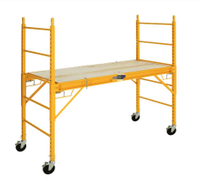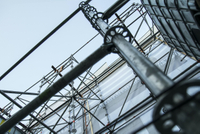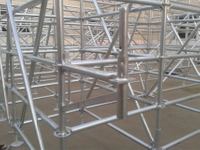Content Menu
● Japanese Pressed Couplers Market Overview
● Leading Pressed Couplers Manufacturers and Suppliers in Japan
>> Nakano Iron Works Co., Ltd.
>> Kobayashi Manufacturing Co., Ltd.
>> Asahi Metal Industry Co., Ltd.
>> Yamato Metal Works Co., Ltd.
>> Tanaka Foundry Co., Ltd.
● Types and Features of Japanese Pressed Couplers
● Quality Standards and Manufacturing Excellence
● OEM Services and Customization in Japan
● Innovations and Industry Trends in Japan
● Conclusion
● FAQ
>> 1. What types of pressed couplers are popular in Japan?
>> 2. What quality standards do Japanese pressed couplers follow?
>> 3. Do Japanese manufacturers offer OEM services?
>> 4. What surface treatments are typical for Japanese pressed couplers?
>> 5. How do Japanese pressed couplers perform in seismic zones?
Pressed couplers are indispensable components in scaffolding systems, essential for ensuring secure and stable connections between scaffold tubes. Japan, known for its precision engineering and manufacturing excellence, is home to some of the finest pressed couplers manufacturers and suppliers in Asia. Offering products that meet demanding safety standards and innovative technological features, Japanese manufacturers cater to both domestic and international markets with high-quality OEM services tailored to specific requirements.This comprehensive article explores the top pressed couplers manufacturers and suppliers in Japan, showcasing their products, certifications, advanced manufacturing technologies, and market positioning.
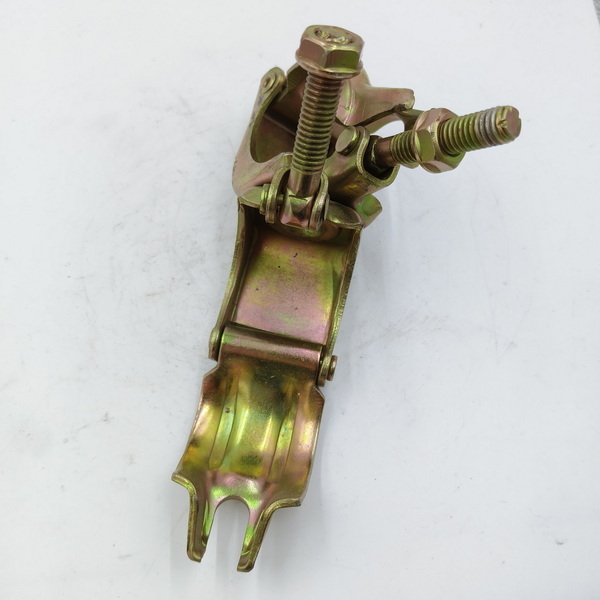
Japanese Pressed Couplers Market Overview
Japan's scaffolding industry prioritizes safety, durability, and technological innovation. Pressed couplers manufactured in Japan reflect this ethos with their superior materials, precision forging techniques, and strict compliance with national and international safety standards such as JIS (Japanese Industrial Standards) and equivalent European EN norms.
The market features manufacturers that integrate robotic forging, computerized quality control, and advanced surface treatments to produce couplers capable of enduring Japan's diverse and often challenging environmental conditions, including seismic activity. These quality metrics ensure that couplers maintain structural integrity under heavy loads and vibration, vital for earthquake-prone regions.
Japan's geographical challenges demand couplers that not only withstand heavy static loads but also dynamic stresses from earthquakes and typhoons. Manufacturers invest extensively in R&D to produce components that feature enhanced ductility, fatigue resistance, and corrosion protection, keeping scaffolding safe through multiple construction cycles. This focus on resilience alongside precision makes Japanese couplers highly sought after globally.
Leading Pressed Couplers Manufacturers and Suppliers in Japan
Nakano Iron Works Co., Ltd.
Nakano Iron Works is a renowned manufacturer specializing in fabrication and forging of scaffolding couplers, including pressed couplers that meet JIS standards. Their wide product range includes double couplers, swivel couplers, and putlog couplers crafted for durability, corrosion resistance, and ergonomic assembly.
The company performs strict in-house testing including load-bearing and corrosion testing to ensure every batch meets or exceeds regulatory requirements. Their products are commonly used in urban construction projects and infrastructure developments demanding high safety reliability.
Kobayashi Manufacturing Co., Ltd.
Kobayashi Manufacturing produces a selection of forged pressed couplers known for precision engineering and high mechanical strength. They supply couplers integrated with Japanese safety regulations and offer OEM services geared towards brand owners seeking high-quality, customizable products.
Kobayashi focuses on continuous innovation such as implementing advanced materials like weathering steels and specialty alloys, improving coupler longevity in exposed conditions. Their cooperation with industrial research institutes helps them maintain cutting-edge manufacturing practices.
Asahi Metal Industry Co., Ltd.
Asahi Metal Industry is another key player in the Japanese pressed couplers market, known for combining traditional forging expertise with modern CNC machining and coating technologies. Their couplers are appreciated for excellent load-bearing capacities and are widely used in both construction and industrial scaffolding.
The company emphasizes digital quality control systems with blockchain-based traceability, allowing clients to track product origins and quality assurance seamlessly. This transparency increases client confidence and supports compliance audits in export markets.
Yamato Metal Works Co., Ltd.
Yamato Metal Works focuses on manufacturing lightweight but strong pressed couplers that are easy to handle and assemble. Their innovations include corrosion-resistant zinc-coated finishes and precise tolerance control, providing stable scaffold connections adhering to JIS standards.
Yamato invests in ergonomic design improvements, creating couplers that reduce assembly time and operator fatigue, ultimately increasing site productivity and safety.
Tanaka Foundry Co., Ltd.
Tanaka Foundry is known for high-quality steel forging and pressed couplers manufacture, supplying couplers that undergo rigorous load testing and surface treatment. OEM customization is a key part of their business model, allowing foreign brands to access Japanese quality with flexible branding options.
Their manufacturing plant incorporates green production methods minimizing environmental impact, aligned with Japan's national policies on sustainable industrial practices.
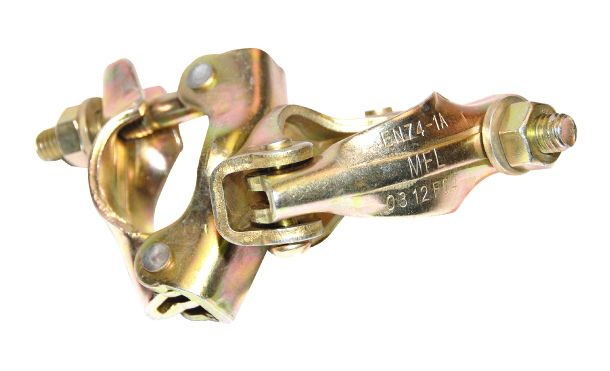
Types and Features of Japanese Pressed Couplers
Japanese pressed couplers come in various configurations tailored to meet construction safety and efficiency demands:
- Double Couplers: Fixed right-angle clamps made from forged steel; key for rigid frame scaffolding connections.
- Swivel Couplers: Allow multi-angle tube connections for diagonal bracing; designed with high precision and durability.
- Putlog Couplers: Connect ledger tubes to transoms at right angles to support walking platforms.
- Half Couplers: Used to attach tubes to walls or structures, enabling cantilever scaffolding.
- Sleeve Couplers: Connect tubes end-to-end, ensuring extension with firm mechanical locking.
Japanese couplers typically fit standard scaffolding tube diameters (48.6mm) and utilize M12 to M14 bolts with high tensile strength for safety and longevity.
Advanced surface treatments commonly used include electro-galvanizing, hot-dip galvanizing, and specialized anti-corrosion coatings adapted to protect couplers in coastal or industrial environments.
Many manufacturers further enhance durability with innovative finishes such as zinc-aluminum alloy coatings, which combine the protection of zinc galvanization with aluminum's resistance to abrasion and heat. This makes couplers particularly suited for industrial and marine construction applications.
Quality Standards and Manufacturing Excellence
Japanese manufacturers conform to strict industry standards, including:
- JIS (Japanese Industrial Standards): Governing material quality, forging processes, and performance metrics.
- ISO 9001: Quality management certification ensuring rigorous production oversight.
- CE Marking: Applicable for exports to European markets.
- Load Testing: Couplers are routinely tested beyond mandated load capacities to guarantee safety in earthquake-prone construction.
Manufacturing incorporates robotic forging, CNC machining for accurate shaping, and laser inspections to identify defects early. Environmental controls during coating and galvanizing processes maintain consistent corrosion resistance.
Double inspection systems are often implemented—initial inspection upon incoming raw materials and final inspection after finishing—to ensure zero defect rates. Continuous employee training and auditing maintain high quality standards throughout manufacturing.
OEM Services and Customization in Japan
OEM partnerships are widely offered by Japanese pressed coupler manufacturers, characterized by:
- Custom sizing and threading options adapted to client specifications.
- Diverse finishing choices including specialized coatings.
- Private labeling and custom packaging for brand differentiation.
- Flexible batch sizes ranging from small orders to mass production.
Many manufacturers support clients with technical consultations to optimize product designs for unique project requirements or regional regulations.
Japanese OEM suppliers are also open to global collaborations, offering logistics support and compliance certifications essential for international distribution.
More advanced OEM services include prototyping with 3D printing for design verification and stress testing before mass production, ensuring perfect fit and function in diverse applications.
Innovations and Industry Trends in Japan
Japanese pressed couplers manufacturers invest in:
- Developing lightweight, high-strength alloys reducing scaffold weight without compromising strength.
- Enhanced ergonomic designs simplifying scaffolding erection and dismantling.
- Integration of IoT and sensor technologies for real-time monitoring of scaffolding safety and load.
- Environmentally sustainable production practices reducing waste and energy consumption.
- Incorporation of anti-microbial coatings in couplers used in health-sensitive environments.
These trends reflect Japan's broader emphasis on safety, efficiency, and environmental stewardship in construction.
Increasingly, manufacturers are exploring digital twin technology to simulate coupler performance during scaffolding assembly, enabling predictive maintenance and reducing onsite failures.
The adoption of modular manufacturing lines and AI-driven quality control are also key innovations enhancing production volume without sacrificing product precision.
Conclusion
Japanese pressed couplers manufacturers and suppliers are trusted for their precise engineering, stringent quality standards, and innovative manufacturing. Renowned companies like Nakano Iron Works, Kobayashi Manufacturing, and Asahi Metal Industry offer robust OEM solutions, meeting domestic and export market demands with customizable, certified products. Their continued focus on technology integration, safety compliance, and environmental responsibility ensures Japanese pressed couplers remain a preferred choice in scaffolding worldwide.
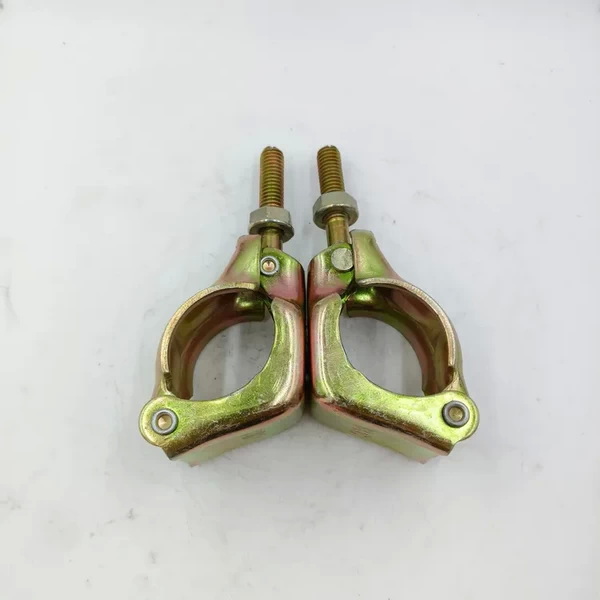
FAQ
1. What types of pressed couplers are popular in Japan?
Common types include double couplers, swivel couplers, putlog couplers, half couplers, and sleeve couplers, designed for versatile and safe scaffolding assembly.
2. What quality standards do Japanese pressed couplers follow?
They comply primarily with JIS standards, ISO 9001 quality certification, and usually meet CE marking requirements for export.
3. Do Japanese manufacturers offer OEM services?
Yes, customized OEM services including sizing, finishing, branding, and packaging are widely available from Japanese suppliers.
4. What surface treatments are typical for Japanese pressed couplers?
Electro-galvanizing, hot-dip galvanizing, and advanced corrosion-resistant coatings are standard practices to ensure durability.
5. How do Japanese pressed couplers perform in seismic zones?
Japanese manufacturers design couplers to withstand significant dynamic forces, including seismic loads, making them extremely reliable in earthquake-prone regions.













